- We
had an enjoyable 3 day trip from Delhi to Gandikota to see the Grand Canyon of
India. Also saw enroute Devanahalli Fort, Lepakshi Temple, Belum Caves and amazing
Shiv/Vishnu temples at Tadipatri.
Experiences
and pictures by Rajat Jain. Details by Editor.
We had a short and great trip. Delhi-Bengaluru-Gandikota-Delhi. Here is our schedule –
1.
Flew from Delhi to Bengaluru.
2.
Same day visited Devenhali Fort i.e. about half an hour away from the airport.
3.
Next visited the wow Lepakshi Temple.
4. Night stay at Anantpur – Hotel Rajahamsa.
5. Next morning enroute to Gandikota visited Tadipatri – 2 temples.
6.
Thereafter, Belum Caves.
7.
Next was Gandikota Fort. At one end of the fort is where you see the Grand
Canyon.
8.
Night stay at Gandikota.
9.
Morning sightseeing at Gandikota and five hour drive to Bengaluru Airport.
10.
Reached Delhi same day.
1. Devanahalli Fort
It
is about a 30 minute drive from Bengaluru Airport.
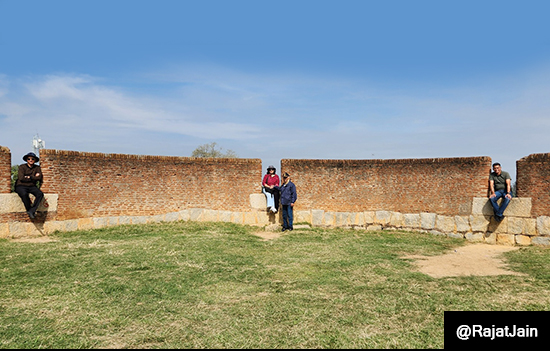
“The history of Devanahalli dates back to 15th century, when a family of fleeing refugees from Conjeevaram (modern day Kanchipuram), camped near the foot of Ramaswami betta, located east of Nandi Hills. Their leader Rana Baire Gowda was apparently directed in a dream to set up a settlement in this region. He and his Morasu Wokkalu family settled in a small village, Ahuti, which was later known as Avati. His son Malla Baire Gowda founded Devanahalli, Chikka-ballapura and Dodda-ballapura. Kempegowda, the founder of Bangalore city is also from Morasu Wokkalu family. During the time of Vijayanagra rule, Malla Baire constructed the initial mud fort in 1501 AD with the consent of Devaraya at Devanadoddi, the previous name of Devanahalli. In 1747 AD, the fort passed into the hands of the Wodeyars of Mysore under the command of Nanja Raja.” Source
and to read more
2. Lepakshi Temple (about 120 kms from Bengaluru)
Lepakshi
temples were built around 1550 CE during Vijayanagara period, are culturally
and archaeologically noteworthy. According to tradition the Sree Veerbhadra (form of Lord Shiva) Swamy Temple was built by Virupanna who was a subordinate
officer of Achyutaraya.
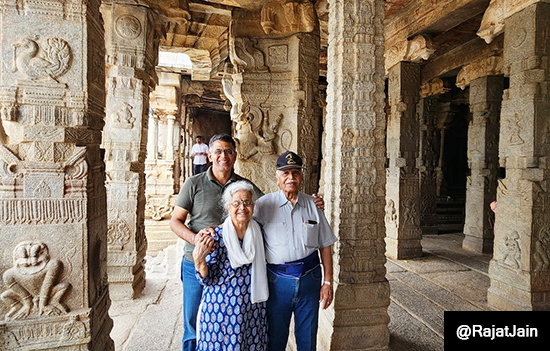 The roof of the hall of the temple is completely covered with frescoes, including scenes from epics and lifelines of the beneficiaries of the temple.
The roof of the hall of the temple is completely covered with frescoes, including scenes from epics and lifelines of the beneficiaries of the temple.
The
temple is known for its Maha Mandapa which has exquisitely carved pillars. The paintings
in the Maha Mandapa and Mukha Mandapa are masterpieces of Vijayanagara Mural
tradition.
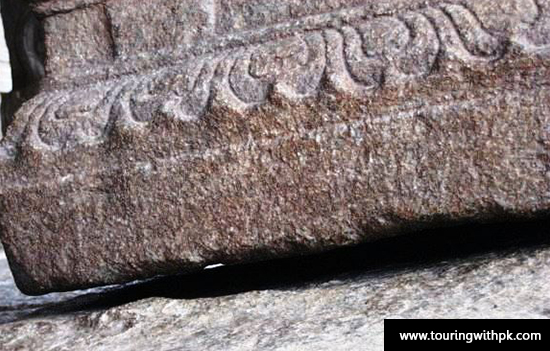 The hanging pillar, that doesn’t rest on the ground, is a miracle.
The hanging pillar, that doesn’t rest on the ground, is a miracle.
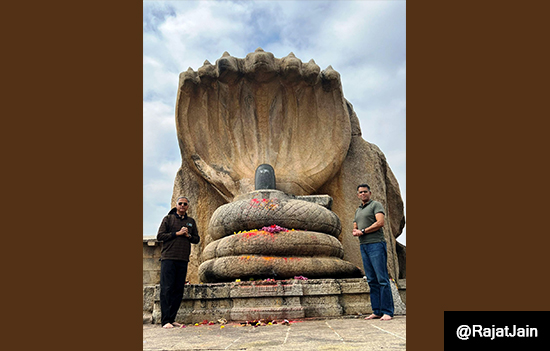 U see Nagalinga.
U see Nagalinga.
The
giant Nandi, carved out of a monolith, is also worth seeing.
“The place where this temple is located is the place where Jatayu (the Vulture that stopped Ravana while abducting Sita to Lanka) died. According to the Valmiki’s Ramayana, when Ram accompanied by Hanuman, met the dying Jatayu, they helped him attain moksha by uttering the words “Le Pakshi,” which in Telugu means “Rise, bird.”
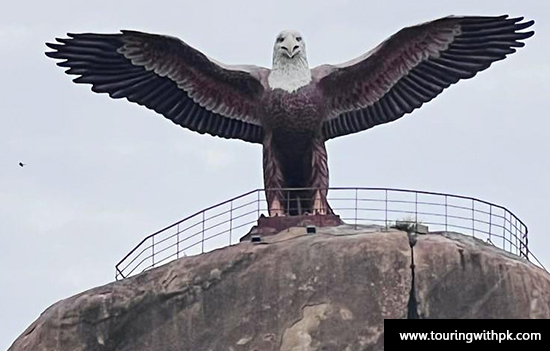 Close by is Jatayu.
Close by is Jatayu.
To
know more about Lepakshi Temple and pictures
3. Night halt at Anantapur Day 1
The town is the district headquarters. We stayed at Hotel Rajahamsa.
Honestly,
because I worked in a sales job am able to stay anywhere. But if you are the
Citibanker types or expecting more from a hotel, this one and others in Anantapur
will fall short. The food is very spicy, not all will like.
4. Visit to temples in Tadipatri (52 kms from Anantapur)
The
town is located on Pennar River. Both
the temples were made in the 16th century during the Vijayanagara
era.
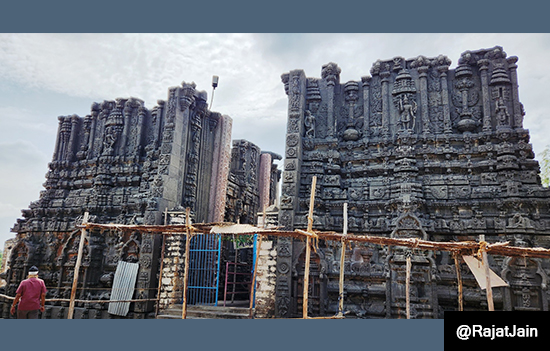 Bugga Rama Lingeswara Swamy. This temple is dedicated to Shivji.
Bugga Rama Lingeswara Swamy. This temple is dedicated to Shivji.
“The main sanctum enshrines a Linga worshipped as Bugga Ramalingeshwara. The word ‘bugga’ means spring in Telugu and the Linga is thus called as there is a perpetual spring near it and is always surrounded by water. In front of the central sanctum is an ornate mantapam called the Ranga
Mantapam which has sixteen elaborately carved pillars, some of which are ‘musical pillars,’ emitting different sounds when tapped lightly. Goddess Parvathi worshipped as Rajarajeshwari, Rama, Chandesha and Virabhadra (a ferocious aspect of Siva who arose from the matted hair of this deity) are also seen in the temple.” Source
The Hindu
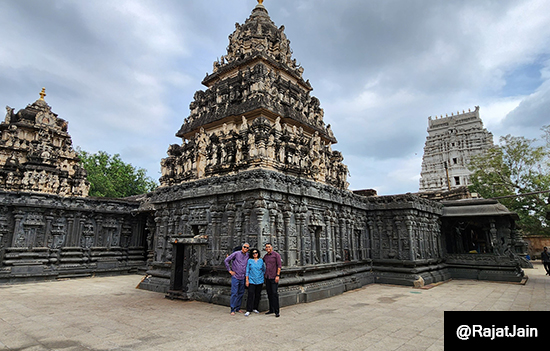 Chintala Venkataramana Swamy.
Chintala Venkataramana Swamy.
This temple is dedicated to Bhagwan Vishnu. “The main deity is Venkataramana or Srinivasa, whose prefix Chintala indicates that this deity will remove worry. This temple has three entrances. On the east are the deepa-stambham and a two-pillar unjal
mandapam which is used during the swing festival. The stone base of the
east gopuram, datable to the Vijayanagara era, is superbly carved with many
images of various forms of Vishnu, guardians of the eight directions (Ashta Dik Palakas), rows of elephants
and horses among others. Facing the main sanctum is a unique shrine for Garuda designed like a chariot (ratha) which is similar to the one seen in the Vittala temple in Hampi. The central sanctum enshrines the principal deity, Chintala Venkataramana Swami in a standing posture.” Source
The Hindu
5. Enroute Belum Caves
“These caves are natural and millions of years old, known to villagers for ages. See Stalagmites and Staiactites. It is very well lit and with different colours. Taking a guide (Rs 200) is recommended.
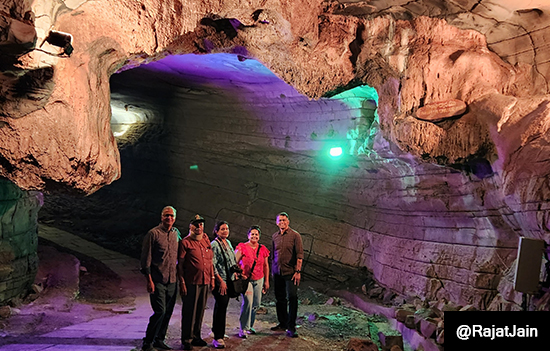 Inside the caves.
Inside the caves.
Also see Kutumsar
Caves Bastar and Mawsmavi
Caves Mehghalaya
6. Night halt Gandikota day 2
We reached Gandikota by 3 pm and stayed at Sri Balaji Resort. Whilst the rooms were ok, it did not serve food. For that went to Andhra Pradesh Tourism’s Haritha resort. We did not stay here because the resort is in bad condition. We discovered camps later, check out this, looked good.
Camps are recommended to stay @Rs 3,000/ per night for two. They have a vantage view point, gazebos to relax. Great place for photo shoots. Speed boating through the canyon is a great idea.
You
enter through Gandikota Fort i.e. was the capital of Vijayanagar at some point.
The vantage point is inside fort.
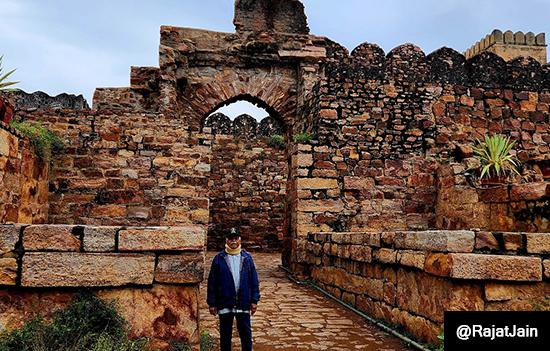 The entrance to the fort! Chalukya dynasty and Golconda Sultanate-12th Century AD.
The entrance to the fort! Chalukya dynasty and Golconda Sultanate-12th Century AD.
7. Gandikota day 3
Surely
see the sun-rise. We had breakfast and went to see Grand Canyon alike.
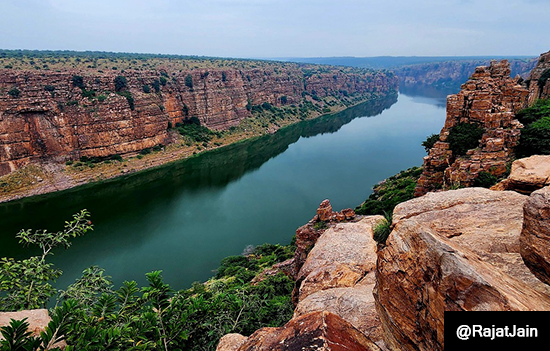 The famed Gandikota Canyon with the Penna river flowing thru it.
The famed Gandikota Canyon with the Penna river flowing thru it.
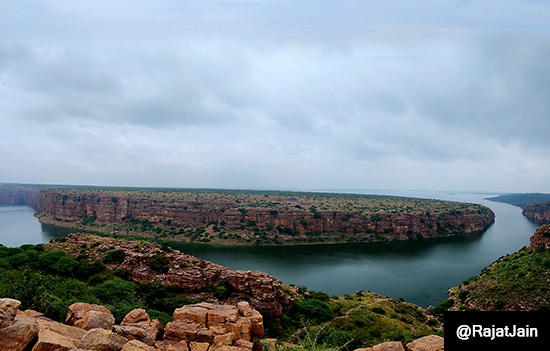 What a view of Gandikota – the Grand Canyon of India.
What a view of Gandikota – the Grand Canyon of India.
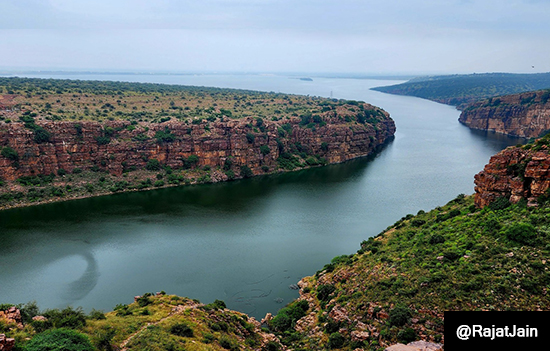 Another view.
Another view.
There
is a facility for rappling too. If you trek down the hill there is a super
speed boat facility available, saw some swimming in the river too. A cable car
is being made across the river.
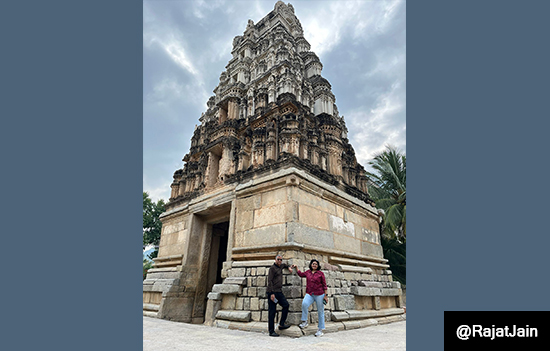 Jain Temple inside the fort.
Jain Temple inside the fort.
Post
sight-seeing we headed straight to Bengaluru Airport to catch a flight to
Delhi. Great trip in all of 3 days.
Co-author Rajat Jain is an avid traveller and a senior marketing professional.